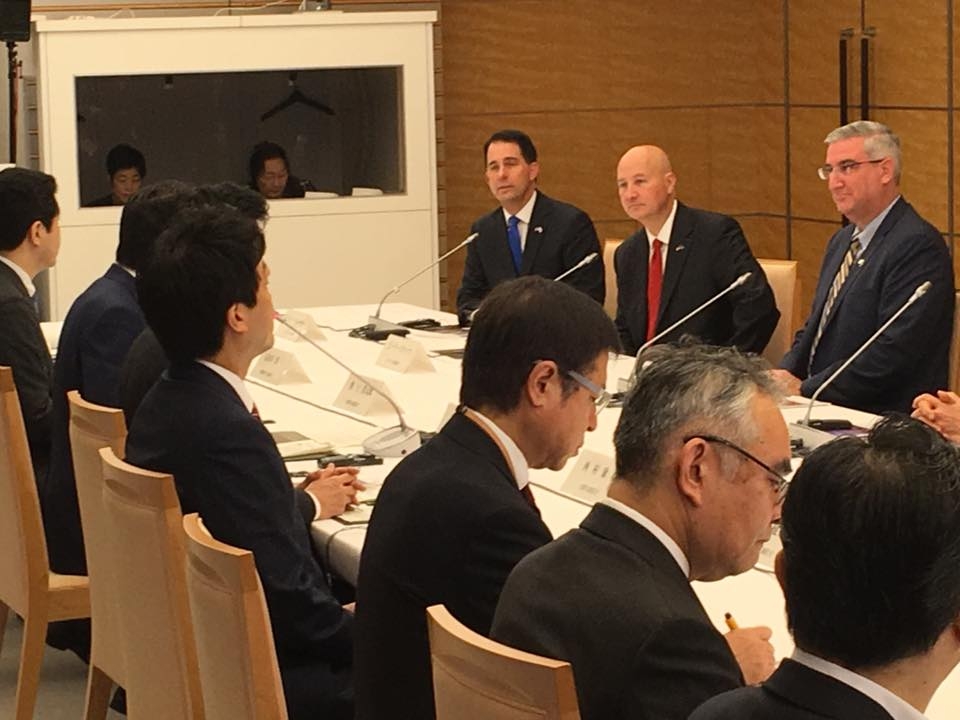Local News
Reluctantly, Republicans make budget deal after Gov. Walker call from S. Korea

Democrats, which had every amendment rejected, say deal prioritized wealthy
MADISON, Wis. — The Wisconsin Senate passed the state budget on Friday 11 weeks after it was due thanks to a last-minute deal with reluctant Republicans, sending the $76 billion spending plan to Gov. Scott Walker who promised to make several vetoes to secure the deal.
It took some late promises and a phone call from Walker, who is in South Korea, to convince three Republican senators to switch from opposition to support of the spending plan. Republicans were one vote short of the 17 needed to approve the $76 billion plan before the deal with Walker was struck.
The Senate voted 19-14 to pass the budget, with all Republicans except Sen. David Craig, from the Town of Vernon, in favor and all Democrats against. Craig, who represents a safe Republican district in the conservative Milwaukee suburbs, had objected to overall spending increases.
The three holdout senators — Chris Kapenga, Steve Nass and Duey Stroebel — said Walker agreed to veto the budget to make repeal of the prevailing wage for state construction projects take effect immediately. Under the budget as passed it wouldn’t be repealed for a year.
Walker said in a statement he also planned to veto changes that would have removed local oversight of rock quarries primarily used for public works or private construction projects. Walker also plans to eliminate a $2.5 million study into interstate tolling and $1 million for state Capitol renovations in the basement.
Another veto would limit school districts to hold referendum votes on regularly scheduled primary and general election days. The budget would have also allowed them in November of odd-numbered years.
Other vetoes would do away with expanding the powers of the Public Financing Authority, remove an energy efficiency exemption to the school district revenue limit and allow the Transportation Department to enact a policy related to how it spends certain federal money.
Walker said he would detail other vetoes when he signs the budget.
The Senate didn’t vote to make any amendments to the budget, which cleared the Assembly on Wednesday, leaving Walker’s veto as the only way to change the spending plan.
Walker could sign the plan and issue vetoes as early as next week. The budget was due on July 1, but current spending continued during the impasse. Wisconsin one of only two states with a July 1 deadline that still doesn’t have a budge enacted.
The massive bill dictates spending for K-12 schools, Medicaid, the University of Wisconsin and the rest of state government through June 30, 2019.
Under the plan, property taxes would decrease $23 on the typical home over the next two years, tuition is frozen for two years at UW campuses and K-12 schools would see a nearly 6 percent increase in state funding. Property taxes paid by small businesses would be eliminated.
The budget also eliminates the alternative minimum tax, which primarily benefits the wealthy, raises fees on hybrid and electric cars and borrows $400 million for roads but doesn’t find a long-term funding solution to keep construction projects on track.
Democrats called the budget a failure, saying Republicans didn’t do enough to help schools, roads and the working class and instead prioritized the wealthy. All Democratic amendments, which they argued made the budget more fair, were rejected.
“It’s shameful, this budget,” said Democratic Sen. Lena Taylor, of Milwaukee, a member of the Legislature’s budget committee. “There’s no other way to put it.”







